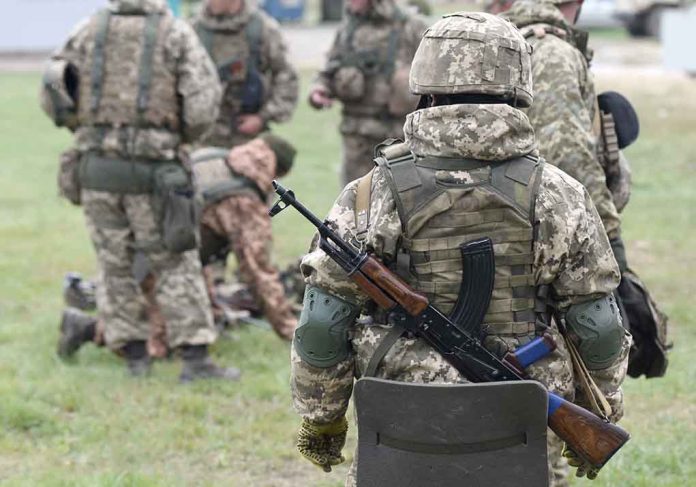
U.S. military forces strike al-Shabab terrorists in Somalia while President Hassan Sheikh Mohamud offers America “exclusive operational control” of strategic bases, including those in breakaway Somaliland, threatening to deepen regional divisions in the volatile Horn of Africa.
Key Takeaways
- AFRICOM has conducted a strategic airstrike against al-Shabab near Kismayo, Somalia, continuing a pattern of military support to Somali government forces
- Somalia’s President Hassan Sheikh Mohamud has offered the U.S. exclusive access to key air bases and seaports, including those in Somaliland, creating additional tensions
- Al-Shabab is regaining strength by exploiting political infighting and challenges with the new African Union peacekeeping operation
- The situation threatens Somaliland’s de facto independence, as the autonomous region has operated its government, security forces, and currency since 1991
- U.S. military presence in Somalia serves as a counterbalance to growing Chinese and Russian interests in the strategically important Horn of Africa
U.S. Military Continues Campaign Against Al-Shabab
U.S. Africa Command (AFRICOM) recently conducted an airstrike targeting al-Qaeda-linked al-Shabab militants approximately 40 miles northwest of Kismayo, Somalia. The operation represents the latest in ongoing U.S. military efforts to combat terrorist organizations in the Horn of Africa. These airstrikes are carried out in close coordination with Somalia’s federal government and armed forces, reflecting President Trump’s commitment to combating Islamic terrorism abroad while supporting regional allies against extremist threats that could eventually target American interests.
“AFRICOM, alongside the Federal Government of Somalia and Somali Armed Forces, continues to take action to degrade al-Shabab’s ability to plan and conduct attacks that threaten the U.S. homeland, our forces, and our citizens abroad,” AFRICOM stated in its official release about the operation.
The militant group al-Shabab has established itself as a serious regional threat over the years of insurgency. According to AFRICOM, the terrorist organization “has proven both its will and capability to attack U.S. forces.” The April operations demonstrate America’s continued resolve to prevent Somalia from becoming a haven for Islamic terrorist organizations, with AFRICOM conducting four separate airstrikes targeting both ISIS and al-Shabab fighters during that month alone.
Somalia Offers Strategic Military Access Amid Regional Tensions
In a move that has significant geopolitical implications, Somali President Hassan Sheikh Mohamud has offered the United States “exclusive operational control” over key military installations, including the Berbera and Baledogle air bases and the ports of Berbera and Bosaso. This offer represents a major strategic opportunity for U.S. military positioning in the Horn of Africa, but simultaneously creates complications with Somaliland, which has operated as a de facto independent state since 1991 and controls the critically important port and airbase at Berbera.
Somalia’s internal political dynamics remain exceedingly complex, with governance structured around traditional clan affiliations. “We Somalis are clans, subclans and sub-subclans,” President Mohamud has acknowledged, highlighting the fragmented nature of Somali society that complicates efforts to establish strong central governance. This clan-based system, formalized in the controversial “4.5 formula” for power-sharing, has been criticized for entrenching divisive clan politics while marginalizing minority groups.
Somaliland Sovereignty At Stake
For over three decades, Somaliland has maintained de facto independence from Somalia, operating its government, security forces, and currency. The region has conducted democratic elections and established relative stability compared to southern Somalia, yet it lacks formal international recognition. Mogadishu’s offer to grant the United States access to Berbera port and airbase has been interpreted by Somaliland authorities as a direct challenge to their sovereignty claims and an attempt to undermine their independent status.
This diplomatic maneuver comes at a time when Somaliland has been actively seeking international partners, including the possibility of military cooperation with other nations. The dispute over these strategic locations could potentially destabilize the relative peace that has characterized Somaliland, one of the few success stories in regional governance within the otherwise troubled Horn of Africa. For American strategic interests, balancing the competing claims remains challenging.
Broader Regional Instability Threatens U.S. Interests
The security situation in Somalia continues to deteriorate as al-Shabab exploits political divisions and weaknesses in the international support structure. The African Union Support and Stabilisation Mission in Somalia (AUSSOM) faces significant funding challenges after the United States backed away from the UN-centered funding system. This financial strain hampers efforts to transfer security responsibilities to Somalia’s national forces, a key objective of international partners seeking to reduce costly external peacekeeping missions.
Somalia’s scheduled federal elections in May 2026 face serious threats from rising tensions and power struggles within the electoral system. The indirect electoral mechanism, which relies on clan elders to nominate parliament members who then elect the president, remains vulnerable to manipulation and corruption. Without addressing these fundamental governance challenges, Somalia risks becoming further destabilized, potentially creating space for increased Chinese or Russian influence in this strategically vital region.
If America withdraws support or fails to maintain strategic engagement, Somalia might seek alternative partnerships with global competitors. Both China and Russia have demonstrated active interest in establishing footholds in the Horn of Africa, with China already heavily invested in neighboring Djibouti and Russia seeking naval access to the vital shipping lanes connecting Europe and Asia via the Red Sea and Indian Ocean.














